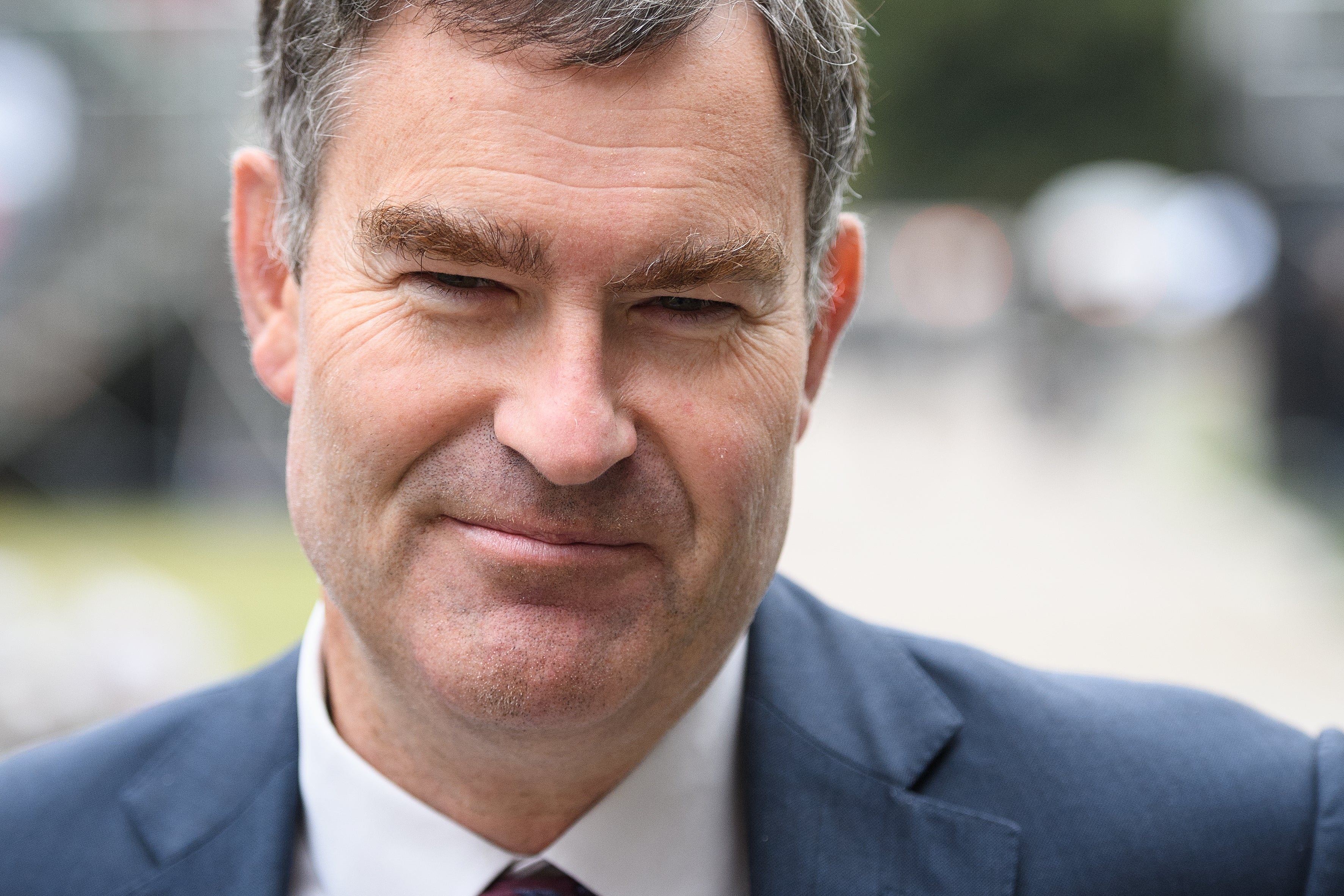David Gauke on the Conservative Party’s love-hate relationship with the Treasury
The former cabinet minister spoke to students at King’s College London – and to John Rentoul


I sat in on the last “History of the Treasury” class of the year at King’s College London yesterday. It is a postgraduate class taught by Professor Jon Davis, in partnership with the Treasury. David Gauke was the special guest, providing insights into the troubled relationship between the Conservative Party and the Treasury over the past 12 years.
Describing himself as “more Treasury than the Treasury”, Gauke was a junior Treasury minister from the start of the coalition government in 2010. He was promoted to chief secretary, attending cabinet, by Theresa May in 2016, before being promoted out of the department to work and pensions secretary after the 2017 election.
As part of the shadow Treasury team before the 2010 election, he and George Osborne were “very keen to reassure the markets”. They wanted to be more ambitious than Labour in reducing government borrowing, and proposed setting up an independent Office for Budget Responsibility (OBR) to make it harder for governments in the future to massage economic forecasts.
He thought the crisis of Kwasi Kwarteng “trying to bypass the OBR” in his brief time as chancellor, and the policy correction which followed, showed that the OBR had come of age and succeeded in the objectives that Osborne had set for it.
But he described how the suspicion harboured by Kwarteng and Liz Truss of “Treasury orthodoxy” did not come out of the blue this year. “I admired Theresa May,” he said, “but she was not particularly a fan of the Treasury. Nick Timothy [May’s joint chief of staff] wanted it cut down, which did not make for a good relationship with Philip Hammond, the chancellor.”
This was partly a struggle between Nos 10 and 11 Downing Street on traditional lines, with the prime minister being keener to increase public spending and the chancellor trying, in Gauke’s words, to “defend the interests of taxpayers and consumers” by keeping taxes down.
May was keen to spend more on the NHS, to match the “£350m a week” on the side of the Brexit bus, and even in the dying weeks of her premiership tried to bounce the Treasury into increasing spending on schools, which Hammond refused to do.
Gauke was aligned with Hammond in these arguments, but was also a supporter of his in the Brexit split in cabinet, in which Hammond was the leader of the faction opposed to a no-deal Brexit.
Several of the students asked questions about the referendum. One asked why the Treasury hadn’t prepared more for a “Leave” vote: “I think that’s unfair, because in the end you require politicians to make choices. It wouldn’t have been right for David Cameron to say, ‘We’ll go for the EEA model.’ That wouldn’t have worked. The Brexiteers wouldn’t have accepted it.”
But he did admit: “What struck me in the years that followed the referendum result was just the – it has to be said – extraordinary level of naivety and ignorance that most politicians had about what the options were. I think I was better informed than most at the time, but in terms of, for example, fully understanding how intractable Northern Ireland as an issue was going to be wasn’t apparent to me. To be fair, John Major and Tony Blair had said this is going to be a really big issue, but I don’t think that was ever really taken on board.”
Gauke was expelled from the parliamentary Conservative Party by Boris Johnson, and lost his seat, standing as an independent, in the 2019 election, but the Conservative Party’s struggle to come to terms with the power of the Treasury – which some people might describe as “economic reality” – continued.
Johnson allowed Dominic Cummings to force the resignation of Sajid Javid as chancellor, who was resisting his spending ambitions, replacing him with Rishi Sunak, who within weeks was borrowing to spend more than anyone had previously thought possible. It wasn’t long, though, before Johnson was chafing at Sunak’s insistence that taxes would have to rise to pay for that pandemic spending.
To keep up to speed with all the latest opinions and comment sign up to our free weekly Voices Dispatches newsletter by clicking here
That tension reached a crisis point in Truss’s 49-day premiership, which ended in the vindication of the OBR and the triumph of the Treasury view.
What was interesting about Gauke’s account was that it traced the chafing of populist Toryism against Treasury constraints from the Brexit vote onwards. May and Johnson both had their battles against the most powerful of Whitehall departments before Truss took it too far and blew the whole thing up, taking most of the Conservative Party’s economic credibility with it.
This is my interpretation rather than Gauke’s: although it may seem as if Sunak’s premiership represents the victory of Treasury orthodoxy, the damage to the Conservatives’ reputation means that the former chancellor has inherited a wasteland.
John Rentoul is a visiting professor at King’s College London
Join our commenting forum
Join thought-provoking conversations, follow other Independent readers and see their replies
Comments
Bookmark popover
Removed from bookmarks